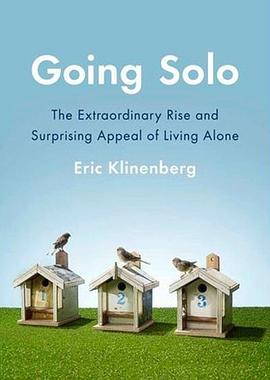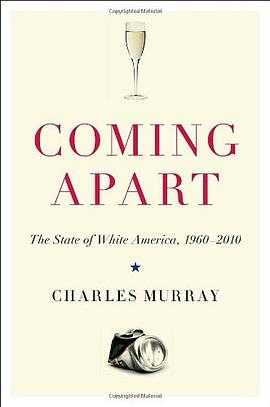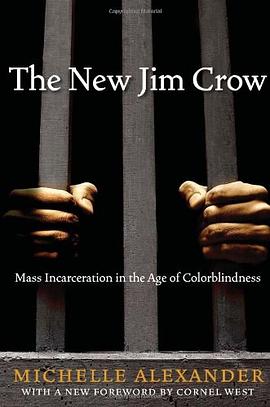

具体描述
A revelatory examination of the most significant demographic shift since the Baby Boom—the sharp increase in the number of people who live alone—that offers surprising insights on the benefits of this epochal change
In 1950, only 22 percent of American adults were single. Today, more than 50 percent of American adults are single, and 31 million—roughly one out of every seven adults—live alone. People who live alone make up 28 percent of all U.S. households, which makes them more common than any other domestic unit, including the nuclear family. In GOING SOLO, renowned sociologist and author Eric Klinenberg proves that these numbers are more than just a passing trend. They are, in fact, evidence of the biggest demographic shift since the Baby Boom: we are learning to go solo, and crafting new ways of living in the process.
Klinenberg explores the dramatic rise of solo living, and examines the seismic impact it’s having on our culture, business, and politics. Though conventional wisdom tells us that living by oneself leads to loneliness and isolation, Klinenberg shows that most solo dwellers are deeply engaged in social and civic life. In fact, compared with their married counterparts, they are more likely to eat out and exercise, go to art and music classes, attend public events and lectures, and volunteer. There’s even evidence that people who live alone enjoy better mental health than unmarried people who live with others and have more environmentally sustainable lifestyles than families, since they favor urban apartments over large suburban homes. Drawing on over three hundred in-depth interviews with men and women of all ages and every class, Klinenberg reaches a startling conclusion: in a world of ubiquitous media and hyperconnectivity, this way of life can help us discover ourselves and appreciate the pleasure of good company.
With eye-opening statistics, original data, and vivid portraits of people who go solo, Klinenberg upends conventional wisdom to deliver the definitive take on how the rise of living alone is transforming the American experience. GOING SOLO is a powerful and necessary assessment of an unprecedented social change.
作者简介
Eric Klinenberg is a professor of sociology at New York University and the editor of the journal Public Culture. His first book, Heat Wave, won several scholarly and literary prizes and was declared a "Favorite Book" by the Chicago Tribune. His research has been heralded in The New Yorker and on CNN and NPR, and his stories have appeared in The New York Times Magazine, Rolling Stone, and on This American Life.
目录信息
读后感
估计每一位看过此书的读者都会觉得,此书叫《独居社会》可能更切合题意一些。 “独居”这个问题的范畴毋庸置疑比“单身”要宽大,而独居的相关问题也比单身多,我觉得这是肯定的。 所以书名为《单身社会》其实是使得书籍的潜在受众范围变窄了。(虽然我个人是对讲“单身”问题...
评分估计每一位看过此书的读者都会觉得,此书叫《独居社会》可能更切合题意一些。 “独居”这个问题的范畴毋庸置疑比“单身”要宽大,而独居的相关问题也比单身多,我觉得这是肯定的。 所以书名为《单身社会》其实是使得书籍的潜在受众范围变窄了。(虽然我个人是对讲“单身”问题...
评分对于大多数人来说,无论结婚与否,都会面临独居的状况。与其说独居是一种选择,不如说是一种能力,具备这种能力,能帮你有效应对生命中随时可能出现的各种变故,同时,学会独处,也是一种自我修炼。任何人都应该尽早培养独居的能力。 同婚姻生活一样,没有一劳永逸的生活方式,...
评分看完后,我不会再去苦催亲友们结婚了。 一开始以为这书读起来轻松,甚至可能是鸡汤,但实际上,上架在社科类,越读越严肃。开头引用了很多书和研究,看注释也收获很多。后面大多美欧的人物访谈,到“独自老去”章节,让人不由的着急起来。 简单从三个方面聊聊: 孤独 这...
评分对于大多数人来说,无论结婚与否,都会面临独居的状况。与其说独居是一种选择,不如说是一种能力,具备这种能力,能帮你有效应对生命中随时可能出现的各种变故,同时,学会独处,也是一种自我修炼。任何人都应该尽早培养独居的能力。 同婚姻生活一样,没有一劳永逸的生活方式,...
用户评价
《Going Solo》这本书,就像是为我量身定做的一份人生指南。作者以一种极其真诚的笔触,深入剖析了“独立”这一主题的方方面面。它并非倡导一种孤傲的姿态,而是鼓励我们在复杂的社会关系中,保持清醒的自我认知,找到属于自己的节奏。我特别欣赏书中对于“自我怀疑”的细腻刻画。我们每个人在成长的过程中,都会不可避免地经历自我怀疑,而这本书提供了一种化解这种怀疑的有效途径。它让我明白,怀疑并不可怕,可怕的是被怀疑所束缚,不敢迈出下一步。书中的故事,充满了生活的质感,让我仿佛亲身经历了一般。它让我重新审视了自己与世界的关系,以及自己在其中的位置。它不是那种会让你立刻变得强大无敌的书,而是让你逐渐认识到自己的力量,并学会如何去运用它。它教会我,在面对困难时,不要轻易放弃,而是要学会从每一次跌倒中站起来,并从中汲取经验。读完这本书,我感觉自己不再是那个被动等待的旁观者,而是成为了自己人生的主动创造者。
评分《Going Solo》这本书,与其说是一本读物,不如说是一场深刻的心灵对话。作者的笔触带着一种穿越岁月的智慧,将“独自”这个看似简单的主题,挖掘出了极其丰富的内涵。它并非鼓吹离群索居,而是引导读者去理解,在人生的旅途中,我们总会有独自前行的时刻,而这些时刻,恰恰是我们认识自我、塑造自我的最佳时机。书中对于“孤独”与“独立”的区别,阐述得尤为透彻,让我茅塞顿开。孤独可能是一种被动的状态,而独立则是一种主动的姿态。作者通过一个个生动的故事,展现了不同个体如何在独自面对困境时,迸发出惊人的能量,如何在这种状态下,重新定义自己的人生价值。我特别欣赏书中对于“内在声音”的强调。在喧嚣的世界里,我们常常被外界的声音所淹没,而这本书提醒我们要学会倾听自己内心的声音,跟随自己真实的渴望。它让我反思,我是否足够了解自己?我是否真正地在为自己而活?读完这本书,我感觉自己像是被注入了一股新的力量,更加渴望去探索未知的领域,去挑战自己的极限,去创造属于自己的精彩人生。
评分《Going Solo》这本书,坦白说,一开始我并没有抱太高的期望,只是被它简洁的书名所吸引。然而,当我深入阅读后,我彻底被它的力量所震撼。作者以一种极其罕见的方式,将个人的经历与普遍的人生哲学巧妙地融合在一起,创造出一种令人沉醉的阅读体验。书中对“独立”二字的探讨,不是流于表面的说教,而是通过一系列鲜活的案例和深刻的剖析,展现了其多层次的含义。它触及了我们内心深处对于安全感、归属感和自我价值的追求,以及在追求这些的过程中所面临的种种困境。我特别欣赏作者对于那些看似微不足道的个人选择背后所蕴含的巨大力量的洞察。它让我意识到,每一次勇敢的决定,每一次对舒适区的突破,都是在为自己的人生增添一抹亮色。书中的语言也极富感染力,时而如清泉般流畅,时而又如惊涛骇浪般震撼,总能恰到好处地击中读者的心灵。它不是那种会让你在读完后立刻找到所有答案的书,相反,它会激发你更多的思考,让你在合上书本之后,依然久久不能平静。它像一颗种子,在你心中种下了独立和自信的种子,需要你自己去细心浇灌,才能最终开出绚烂的花朵。
评分《Going Solo》这本书,就像是在我人生的岔路口,为我点亮了一盏灯。作者以一种极其贴近读者的方式,深入浅出地探讨了“独立”这一复杂而深刻的主题。它不是那种励志的宣言,而是充满了细致入微的观察和充满智慧的洞察。我尤其喜欢书中对“自我疗愈”的描绘。在人生的旅途中,我们难免会受伤,而这本书提供了一种积极的应对方式,教会我们如何从内而外地疗愈自己。它让我明白,我们不需要依赖外部的慰藉,我们自身就拥有强大的疗愈能力。书中的一些场景,让我回忆起自己曾经的经历,那些在孤独中坚守的时刻,那些在迷茫中寻找方向的日子,都仿佛被重新唤醒。它让我意识到,那些看似平凡的“独自”时刻,其实都蕴含着巨大的成长能量。它不是一本看完就束之高阁的书,而是一本值得反复品读,并在不同的人生阶段都能获得新启示的书。它让我更加珍惜与自己相处的时光,也更加坚定地走在属于自己的道路上。
评分我必须承认,《Going Solo》这本书给我带来了一种前所未有的共鸣。在书中,我看到了自己熟悉的影子,看到了那些曾经在我心中徘徊的犹豫和挣扎,也看到了那些在黑暗中摸索前进的勇气和希望。作者的叙述方式非常独特,它不似流水账般记录事件,也不似学术论文般严谨分析,而是像一位知心朋友,娓娓道来,却句句戳心。它所探讨的“独自”的状态,不是一种被迫的孤立,而是一种主动的选择,一种对自我边界的探索和确立。我尤其被打动的是书中对于“接受不确定性”的描绘。我们总是渴望掌控一切,追求所谓的“完美”,但生活本身就是充满未知和变数的。这本书教会我,与其对抗这种不确定性,不如拥抱它,从中找到成长的机会。书中的某些段落,甚至让我产生了想要立刻行动的冲动,想要去尝试一些一直以来不敢做的事情。它让我明白,所谓的“独立”,不仅仅是经济上的自给自足,更重要的是精神上的独立,是能够独立思考,独立判断,并且有勇气为自己的选择负责。它像是一面镜子,映照出我内心深处的渴望,也指引我走向更光明的未来。
评分这本《Going Solo》在我心里留下了极其深刻的印记,它不仅仅是一本书,更像是一位老朋友,在我人生某个阶段恰好出现,给予了恰到好处的陪伴与启迪。从翻开第一页起,我就被作者那细腻入微的笔触和直抵人心的情感所吸引。书中描绘的那些独自面对挑战、寻找内心力量的旅程,让我看到了自己曾经的挣扎与渴望,也让我看到了未来的可能性。那种在孤独中孕育出的坚韧,那种在自我探索中获得的成长,都被作者描绘得淋漓尽致。我尤其喜欢书中对细节的捕捉,无论是微风拂过脸颊的触感,还是内心涌起的复杂情绪,都仿佛被赋予了生命,真实而鲜活地展现在我眼前。它不是那种轰轰烈烈、充满戏剧性冲突的故事,而是一种润物细无声的触动,让你在阅读的过程中,不知不觉地反思自己的生活,审视自己的选择。这本书让我明白,孤独并非全然是负面的,它也可以是一种宝贵的经历,一个让你更了解自己、更强大自己的契机。它教会我如何与自己和解,如何在不依赖他人的情况下,找到属于自己的快乐和价值。读完之后,我感觉自己像是完成了一次心灵的洗礼,更加坚定地走在属于自己的道路上,也更加珍惜生命中的每一个“独自”的时刻。
评分这本《Going Solo》给了我极大的震撼,它以一种极其个人化的视角,却触及了最普世的人生议题。作者的文字有一种魔力,能够轻易地拨动人心最柔软的弦。书中对“自我赋权”的描绘,让我尤为深刻。它不是那种空洞的口号,而是通过一个个具体的行动和心态的转变,展示了如何从内而外地获得力量。我非常喜欢书中关于“接受不完美”的讨论。我们总是倾向于追求完美,却往往因此错过了很多美好的事物。这本书教会我,接受自己的不完美,并以此为起点,继续前进,这本身就是一种强大的力量。它让我意识到,我们不需要别人的认可来证明自己的价值,我们自身的价值,就在于我们敢于做自己,敢于独自面对生活。书中的一些观点,让我对过去的一些经历有了新的解读,也对未来的生活充满了期待。它不是那种能立刻解决所有问题的“心灵鸡汤”,而是更像一位智慧的长者,在你迷茫的时候,给予你温暖的指引和坚定的力量。它让我更加勇敢地去拥抱生活中的每一个挑战,也更加懂得如何去珍惜那些独自走过的路。
评分《Going Solo》这本书,给了我一种前所未有的启迪。作者以一种极其成熟的视角,将“独立”这一主题,剥离出各种复杂的社会附加意义,回归到其最本质的内涵。它不是一种对抗,而是一种与自我的和解,一种与世界的连接。我特别欣赏书中对于“赋权”的描绘。它不是一种被动的给予,而是一种主动的获取。它让我明白,我们不需要等待别人的认可,也不需要别人的帮助,我们自身就拥有改变自己命运的力量。书中的叙述方式,非常引人入胜,它不会让你感到枯燥乏味,反而会让你沉浸其中,与作者一同思考。它让我重新审视了自己过往的经历,那些曾经让我感到困惑的时刻,在书的引导下,都变得豁然开朗。它不是一本能够立刻让你变得无坚不摧的书,而是一本能够让你逐渐认识到自己内在潜力的书。它教会我,如何在复杂的世界中,保持清醒的头脑,做出最适合自己的选择。读完这本书,我感觉自己像是完成了一次灵魂的净化,更加坚定地走在属于自己的人生道路上。
评分我必须说,《Going Solo》这本书,以一种极其独特的方式,触动了我内心最深处的柔软。作者的笔触带着一种温柔的力量,将“独立”这一概念,描绘得既坚韧又充满诗意。它并非鼓吹一种孤僻的生活方式,而是鼓励我们在人生的旅途中,学会与自己和谐共处,并从中汲取力量。我尤其被书中对于“内在对话”的描绘所吸引。在信息爆炸的时代,我们常常被外部的声音所裹挟,而这本书提醒我们要学会倾听自己内心的声音,与自己进行有意义的对话。它让我明白,真正的独立,源于清晰的自我认知和坚定的自我信念。书中的许多段落,都让我反复咀嚼,每一次阅读,都能从中获得新的感悟。它不是一本能够立刻改变你命运的书,而是能够悄悄地改变你心态的书。它教会我,如何欣赏生活中的小确幸,如何从每一次的跌倒中找到成长的契机。读完这本书,我感觉自己像是完成了一次精神上的远足,更加明晰了前行的方向,也更加有勇气去拥抱未知的未来。
评分当我翻开《Going Solo》这本书时,我并没有预料到它会给我带来如此深刻的思考。作者的文字如同一股清流,缓缓注入我的内心,洗涤了我长久以来的一些固有观念。它所探讨的“独自”的状态,并非是令人沮丧的孤立,而是一种积极的自我探索和赋能。我特别被书中关于“边界感”的阐述所打动。在人际交往中,我们常常会模糊自己的边界,而这本书提醒我们,清晰的边界是保护自我、实现独立的重要前提。它让我明白,学会拒绝,学会设定优先级,是独立人格的重要体现。书中的许多观点,都让我产生了强烈的共鸣,仿佛作者正是看到了我内心深处的想法,并用文字将其具象化。它不是那种会让你立刻拥有超能力的读物,而是让你逐渐认识到自己内在的潜力,并学会如何去挖掘和运用它。它教会我,在纷繁复杂的世界中,要保持独立思考的能力,不被外界的声音所左右。读完这本书,我感觉自己对“独立”有了更深刻的理解,也更加有信心去面对生活中的种种挑战。
评分当社交媒体和当代生活方式解决了一部分孤独问题,而群居又无法解决另一部分孤独问题,越来越多的人就开始独居。独居反而是勇敢面对生活,积极对抗孤独的表现。但是,个人觉得独居也是极其奢侈的,像我国这种魔幻的社会环境 还是算了吧 呵呵。
评分They can help each other to live alone.
评分断断续续读完……貌似除了年老不能自理是个问题之外,其它都不是什么大问题……
评分当社交媒体和当代生活方式解决了一部分孤独问题,而群居又无法解决另一部分孤独问题,越来越多的人就开始独居。独居反而是勇敢面对生活,积极对抗孤独的表现。但是,个人觉得独居也是极其奢侈的,像我国这种魔幻的社会环境 还是算了吧 呵呵。
评分消极的数据堆叠????️????️
相关图书
本站所有内容均为互联网搜索引擎提供的公开搜索信息,本站不存储任何数据与内容,任何内容与数据均与本站无关,如有需要请联系相关搜索引擎包括但不限于百度,google,bing,sogou 等
© 2026 book.quotespace.org All Rights Reserved. 小美书屋 版权所有




















